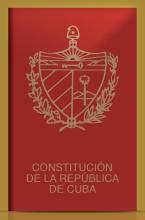Our history
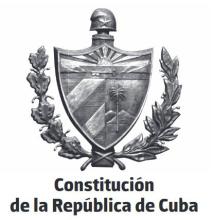
On April 10, 2019, the current Constitution of the Republic of Cuba, which reinforced citizen guarantees, was proclaimed by virtue of constitutional reform and popular referendum. Article 147 defines that "the function of imparting justice derives from the people and is exercised in their name by the Supreme People's Court and the other courts that the law institutes", which is responsible for establishing the main objectives of judicial activity; regulate the organization, jurisdiction and extent of its competence; the way in which they are constituted for the acts of imparting justice; the requirements that magistrates and other professional and lay judges must meet; your form of choice; the causes and procedures of revocation or cessation in the exercise of their functions.

The Law of Organization was repealed by Law No. 70, of July 12, 1990, and this, by the current Law No. 82, "Law of the People's Courts", of June 11, 1998, which reinforces independence judicial when granting to the Government Council of the Supreme People's Court functions in relation to the provincial and municipal courts that previously resided in the Ministry of Justice.
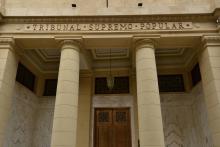
In compliance with the constitutional mandate, the Law of Organization of the Judicial System, of August 18, 1977, regulated the organization, structure and functions of the Court System, made the pertinent modifications, although it maintained the existing organizational bases and essential principles.
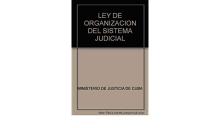
In the area of the process of improvement of the Cuban state institutions and, in particular, of the justice system, the Law of Organization of the Judicial System was promulgated on June 23 of that year that responded to the need to unify the different then existing jurisdictions in a single judicial system that will guarantee the uniform application of justice throughout the country.
The essential organizational bases instituted for the courts were their collegial nature and their integration by professional judges, and lay judges in the matter, all elective, responsible and revocable.
The Constitution of the Republic created the judicial career and established the fundamental principles on which this function would be sustained, which in turn were assumed, after the triumph of the Revolution, by the Fundamental Law of 1959.
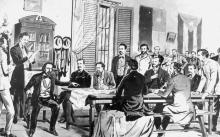
The first republican constitution defined: “… the Judicial Power is exercised by a Supreme Court of Justice and by the other Courts established by the laws, which will regulate their organization and powers and the conditions that must be met by the officials that integrate them.”
By virtue of its status as a colony of Spain, there were no courts of its own in Cuba; the applicable legislation and judicial bodies were those established in the metropolis.
The creation of the Supreme Court of Cuba dates from April 14, 1899, constituted by a Single Chamber to impart justice, an organ that underwent successive modifications and was institutionalized by means of the Organic Law of the Judicial Power of January 27, 1909.

